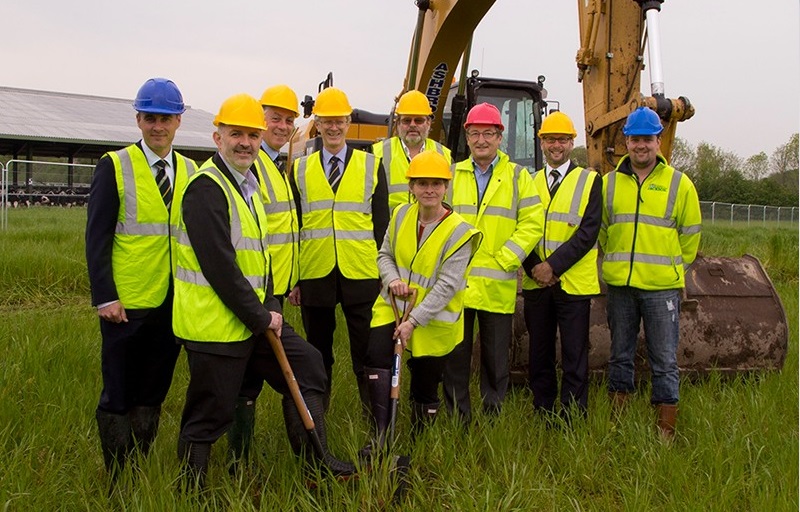
Ground has been broken on the Harper Adams University farm, signalling the start of building work to create a new high-tech dairy unit.
The £750,000 facility, which will operate alongside Harper Adams’ existing dairy unit, will serve the Agricultural Engineering Precision Innovation (Agri-EPI) Centre, which received £17.7 million investment under the Government’s Agri-tech Strategy to help the UK’s agri-food sector develop advanced technologies that will increase productivity and sustainability in UK agriculture.
The Centre will have hubs in Edinburgh, Harper Adams University (the Agri-Innovation Hub, already under construction) and Cranfield University, but will also be served by a series of farms and processing facilities equipped with the latest sensing and imaging equipment – including the new precision dairy unit at Harper Adams.
The new dairy will be one of three such units within Agri-EPI, with Kingshay Farming in Somerset and SRUC in Dumfries involved in establishing the others.
Professor of Applied Animal Behaviour, Mark Rutter, explained: "The new dairy facilities within Agri-EPI will enable scientists, the dairy industry and agri-engineering companies to work together to develop the next generation of dairy housing and management.
"A key concept will be developing technology that facilitates cow choice, as research has shown that this can improve milk production efficiency as well as improving animal welfare.”
The Agri-EPI Centre is a consortium of key organisations in the field of precision agriculture and engineering.
It brings together expertise in research and industry, as well as data gathering capacity in all areas of farming, to increase the efficiency and sustainability of the land-based industries.
By uniting organisations in all sections of the supply chain – 76 companies and institutions in all – it will become a world-leading centre for excellence in engineering and precision agriculture for the livestock, arable, aquaculture and horticulture sectors.
The new building is costing nearly £520,000 to construct, with the project total reaching £750,000 once equipment and other associated works are taken into account.
